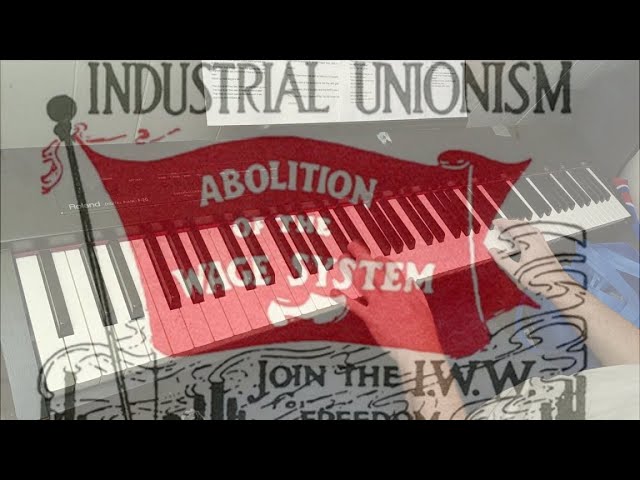Imnecomrade - pronounced “I am any comrade”
Techie, hippie, commie nerd
- 16 Posts
- 108 Comments

 11·10 months ago
11·10 months agoAt least from my interpretation, it’s a comparison solely from the end-user perspective, sarcastically dismissing the work of backporting security fixes, which I believe is still funny in its own right. But yes, the joke falls apart beyond this scope.

 1·10 months ago
1·10 months agoI wish it was the full anthem.

 11·10 months ago
11·10 months agoThis is one of the dankest linux memes I have seen in a while.

 4·10 months ago
4·10 months agoPlease use Prism Launcher instead for security reasons even though you want to spite PolyMC. Gentoo Linux removed its PolyMC package to prevent users from potentially getting malware from a rogue dev.
https://prismlauncher.org/wiki/overview/faq/
What is Prism Launcher?
For some more insight, please refer to: Moving on
Prism, both the project, and the community surrounding it, descends directly from PolyMC, which was forked from the MultiMC project in late 2021.
The original fork was primarily a result of continuing disagreements between a portion of the community, and MultiMC’s lead maintainer, mainly surrounding the topics of 3rd party packaging and re-distribution. Many users of the time, especially across Linux, and other Unix-like platforms, were left dissatisfied by MultiMC’s policy of restricting self-built packages, by not allowing the launcher to build with the necessary API keys for the successful authentication of Microsoft Accounts.
What happened to PolyMC? Why is there a new fork?
TL;DR
Prism Launcher was forked from PolyMC due to specific commits & executive decisions made by a maliciously inclined individual.
What Happened?
Prism Launcher was forked from PolyMC due to a sequence of actions by Lenny McLennington on the 17th of October, 2022. Lenny made several politically charged changes to the PolyMC GitHub repository and organization to remove those supporting “left-wing ideologies”. In a commit, Lenny removed the PolyMC Code of Conduct, which outlined and prohibited discrimination against the LGBTQIA+ community and subsequently removed all maintainers. The commit and subsequent mass purge of maintainers were done without prior warning or discussion with the rest of the PolyMC team; the incident can be considered a hostile takeover.
Development of Prism Launcher requires community members & contributors to adhere to our Code of Conduct. We disagree with Lenny’s actions and have created Prism Launcher to prevent any further politically inspired damage. Locking maintainers out of a project sets an unfavourable precedent and does not ensure that the PolyMC project will remain in good hands. We sincerely hope that you enjoy using Prism Launcher as we strive to deliver a consistent experience to our users.
Should I use Prism Launcher? Is PolyMC safe to use?
We cannot guarantee that new changes to PolyMC will be non-malicious, and we advise that you migrate to Prism Launcher instead of continuing to risk using PolyMC. It is up to you whether you wish to continue using PolyMC. Prism Launcher’s Code of Conduct assures development will always occur in a fair manner that does not involve political motivation.
What does this mean for the future?
Prism Launcher will continue to have the same functionality as PolyMC did before this malicious commit, and we will continue to add features from there. All contributors who were removed from the project have begun developing Prism Launcher. As an end-user, switching to Prism Launcher will manifest as a change in logo & name for the time being.
Prism Launcher will continue to be accessible to everyone on all platforms, so no one is left behind. We do this by officially maintaining packages across a wide range of operating systems such as Windows, macOS, and both native and Flatpak and AppImage releases on Linux. And, where there are gaps in official distribution, 3rd party builds will always welcome in our community.
Furthermore, while the MultiMC project is stated to focus on “predictability” without seeking to incorporate any “flashy features”, Prism will continue to do the complete opposite, with many new and exciting features already on the horizon.

 3·10 months ago
3·10 months agoWe only align with progressive theists because the enemy of our enemy (capitalism) is our ally.
https://yewtu.be/watch?v=pDSZRkhynXU&t=677
Hakim mentions about one of the mistakes of former socialist nations is the repression of religious practice. Religion may never disappear fully, but it does more harm to suppress progressive theists’ freedom of religious expression as it can lend reactionaries power but also misses the opportunity to use religion as a powerful tool to demonstrate its compatibility with socialist ideals. As many arguments are antitheist in this thread, I am curious about people’s perspectives on this point.
I’m agnostic, btw.

 13·10 months ago
13·10 months ago

 2·10 months ago
2·10 months agoNah, I don’t want to abuse the voting system. I prefer to give only one vote as one person. Unlike the undemocratic US where corporations get an extra vote and money is the actual deciding factor of a candidate winning, as long as they are neoliberal and decided upon the ruling class.

 3·10 months ago
3·10 months agoSame, as I am still a “socialist padawan”, but I believe you were spot on, and I will be keeping your advice in mind when I have conversations with people about similar topics. I get nervous about coming the wrong way, too, which is why I edit my comments a lot to make sure I don’t come across as offensive or reactionary by accident. I am a USian, myself, but I try to be considerate and open to ideas from people from all sorts of backgrounds and cultures.

 3·10 months ago
3·10 months agoI believe a movie that may not scare libs off is The Creator, which shows US imperialism against sapient robots and China. Such a movie might possibly chip away some of their imperialist mindsets, I hope. It’s now my top favorite movie of all time.

 3·10 months ago
3·10 months agoSolid answer with great advice, I wish I could give you more upvotes.

 5·10 months ago
5·10 months agoTo summarize (for OP, I have essentially repeated your response in affirmation and in a more verbose form), it is beneficial to give people a glimpse into the possible future of a socialist society, but we cannot determine what that future will entail until it is manifested in reality. While I still like to envision a communist future where we use computers to automate resource allocation and distribution based on need, efficiency, and safety of the planet and humanity while cutting the money-middleman out, a fully automated communist society will not occur until the distant future, thus it is not very productive to dwell on this idea while we are still struggling under capitalism and trying to bring class consciousness to the working class. There are many steps, as mentioned in the book (which I still need to finish), that would likely precede the need to allocate resources digitally when a socialist society is formed. We will be starting under the conditions of the capitalist framework, and some changes can occur overnight while others will require more time to deconstruct the current system and reconstruct an improved socialist framework.
It is more important at this moment to educate people about class struggle and to build unity under the idea that a better society can be achieved, even if we don’t and cannot know the full details of such a society. We can look to other socialist countries and experiments now as potential examples, but I believe more people need to be deprogrammed from the Red Scare first before they are open to such projects and concepts.

 7·10 months ago
7·10 months agoWhile The Venus Project and The Zeitgeist Movement were my personal gateway to becoming a socialist, I resonate with your point that using the concept of a computerized resource-based economy to persuade people tends to lead them into the misconception and fear of such a society being ruled by a “robotic dictator”, and I can attest to this from previous conversations I’ve had. These organizations I mentioned were also reformist and believed that by simply making a better alternative of society possible and more affordable through the means of technological innovation alone, a socialist society could be realized nonviolently, which, of course, we can see from examples like solar panels being more affordable but not profitable that this notion has turned out to be false, plus the ruling class does not want to give up their power nonviolently. At the time, I would say that “I believe I could trust a robot to be more ethical than easily corruptible humans,” and this was before I learned more about socialism and realized this statement negated previous socialist experiments and current AES countries achieving more just societies and dismissed the potentially dangerous outcomes of a “robotic leader” (though I said this more out of frustration as I couldn’t come up with a better answer).
From the book, Socialist Reconstruction: A Better Future for the United States, I will provide this excerpt from the preface:
The Fourth Party Congress discussion revolved around some of the particular ideological challenges facing a revolutionary process in the United States, where anti-communism has long been the unofficial religion, and in the world generally in the post-Cold War era. There is no absence of militant struggle in the United States, but without a simultaneous ideological struggle to revive socialism as the legitimate alternative to capitalism, this will not happen on its own. Socialists cannot expect to make a revolution by being the best and most dedicated organizers in the mass struggles and then hope that one of these mass struggles simply gives way to socialist leadership in a time of great crisis. Neither is it sufficient, given the urgency of the times, to win people over to socialism in ones and twos. A larger cultural shift and acceptance of socialism must be effected and a mass pro-socialist consciousness has to be deliberately cultivated, now and in advance of a revolutionary crisis, if socialists are to successfully seize such an opportunity.
For all these reasons and more, we resolved to write a book that we understood would be unorthodox for Marxists. Among the Marxist left, it has long been a principle that no one can sketch out a blueprint for what a socialist society or government will look like. But that’s what the assembled writers have done here–not because we have located a crystal ball, but because it has become politically necessary for our current time.
Previously, we might have argued that sketching out such a blueprint would be an exercise in utopian dreaming. It would be more useful to spend our time organizing and writing around a burning issue of the moment. After all, no revolutionary process follows along ready-made paths. Anything can be written on paper, but in practice, all political processes encounter new variables, twists, and turns that cannot be anticipated. When the working class comes to power, involving millions in the reorganization of society on a practical level, this will produce and generate so many new ideas and solutions; the new power will not be bound by or follow the script of any one book or pamphlet that has been written years earlier under capitalism.
Karl Marx himself declined to describe the details of future socialism, insisting instead that he and the rest of humanity were “uncivilized” compared to the future human beings of highly developed socialism and communism. Future societies would look back at our world and be astonished at how limited our understanding was. The important thing for revolutionaries, Marx and Friedrich Engels established, was to identify the contradictions within capitalism that would spell its downfall, and organize that class that has every interest in such a revolutionary transformation–the working class. Once the working class became conscious of itself as a class, understanding its distinct interests and developing its own yearning for political power, this would set the stage for a socialist revolution. To that end, Marx consciously broke with utopian socialists and focused his intellectual work on a critique and analysis of capitalist development.
A few pages are devoted to a broad sketch of socialism and communism in The Grundrisse, Critique of the Gotha Program, and in Engel’s The Housing Question. His most important work, Capital, says very little about these matters. Even The Communist Manifesto limits its forward-looking program to a general picture of the rise and ultimate fall of capitalism, forecasting that the working class would overthrow the rule of private property. It includes a series of immediate changes for the first stage of socialism in advanced capitalist countries: the abolition of private land ownership and inheritances, state control of banking and industry, the shared responsibility of all to labor, free education for all, a gradual abolition of the distinction between town and country, and so on. The Manifesto provides no further details on what all this looks like and even these measures “…will, of course, be different in different countries.”
Since the publication of the Manifesto in 1848, socialist and communist parties have mostly limited their publications and presentations in a similar fashion to Marx and Engels. Their programs describe their overall vision, what they are fighting for, and emphasize what immediate changes they would declare right away to remedy the central problems of capitalism. It would be inappropriate for a party program to go beyond this. For political parties, the program represents the essential basis of unity for someone who is considering joining. One can be in the same party, in other words, without agreeing to all the ins and outs of what future socialist living and governance would look like. In the future, such questions may in fact become dividing lines, but for now, the primary task is for the working class to conquer power, and a socialist party must devise strategies and tactics to that end.
The Party for Socialism and Liberation (PSL), which published this book, also has a program which is keeping with that Marxist tradition and serves as the essential basis of unity for our organization. So why did we also produce this book, which in some ways, breaks with the Marxist tradition of declining to provide a blueprint for socialism?
This book does not substitute for a party program but serves another purpose entirely: to demonstrate, rather than just declare, that there is an alternative to capitalism in the United States, and to start a dialogue with all of society about what such a socialist society will look like. In this project, we have enlisted as writers individual members, and some non-members, who have experience and expertise in particular fields and areas of struggle, and posed to them a singular question: if the working class already had power in the United States, how would it reorganize society? Of course, we do not pretend that any of the responses represent the final word or final answer to any of these questions. That can only be shaped in real life. Nor is every major question about what socialism would look like answered. Each chapter demonstrates that another world is not just possible, but quickly achievable once private profit is removed as the engine of society and the existing technology, resources, and power structures are reorganized to meet the needs of the people and the planet.
Our mission with this book is not to convince everyone of every detail, but rather to raise the socialist and communist horizon, to reintroduce that into our day-to-day organizing work, to make socialism vivid and real; to give people a taste so they order a full helping. Much of popular culture today is rightfully understood as a form of escapism, allowing a reprieve from the depressing reality of capitalism. Many contemporary postapocalyptic films and novels attest to the truth that it is now easier to envision the end of the world than it is to envision a new system. This book is an attempt to puncture that. It too is escapism, but of a different type: to escape for a moment from the narrow and horrible boundaries of what appears politically possible at this exact moment; to let our minds jump forward one historical stage and conceive of how much we could achieve under socialism. There is a considerable history of political science fiction, some of it quite sophisticated, which speculates on how future high-tech societies could be reorganized and, in turn, impact social relations. But typically, socialist organizers have only indulged in such conversations over a meal or a drink, perhaps after a meeting or a long day of marching. Here we bring greater systematic thinking and concreteness to these discussions.
I need to split this response in two due to the character limit…

 18·11 months ago
18·11 months agoMost evil Gazan

 5·11 months ago
5·11 months agoIf you are in the US, if you contact PSL, they can help you start a pre-branch or inform you of one forming in your area that you are not aware of. The latter happened to me.

 5·11 months ago
5·11 months ago- Awesome Electronics: https://github.com/kitspace/awesome-electronics
- Open-source Electrical Engineering Curriculum: https://github.com/Artoriuz/OSEE
- Rossmann Repair Training Guide (Louis Rossmann is autistic, btw): https://docs.google.com/presentation/d/1PkeO_lC5WTPScSV3ZzEEjVuDWeQtL2eHK6jEcf7axA0/htmlpresent
- Open Source Society University: https://github.com/ossu
- The Engineering Toolbox: https://www.engineeringtoolbox.com/
- HyperPhysics: http://hyperphysics.phy-astr.gsu.edu/hbase/hframe.html
- Awesome Math: https://github.com/rossant/awesome-math
- Learn Anything: https://github.com/learn-anything
- MIT OpenCourseWare: https://ocw.mit.edu/
- Free Harvard Online Courses: https://pll.harvard.edu/catalog/free
- Open Yale Courses: https://oyc.yale.edu/
- Library Genesis is your friend if you want to sail the seven seas for textbooks. I typically look up recommended books for different subjects from forum q&a’s on the internet, including reddit and stackexchange, and then I set sail to the good ol’ libgen.
- Archive.org for books and media as well
If you search online for awesome {insert subject here} git (or github), you will find many curated lists of resources. For example: Awesome Mechanical Engineering Resources and Awesome Biology

 11·11 months ago
11·11 months agoA recession always works in favor of the banks and hurts the working class. The working class are kicked to the street and left to starve while the rich buys everything at a discount.
In the “Great Recession” that began in 2007, tens of millions in the United States lost their jobs, homes, healthcare, and pensions. The crisis was so deep and the government response was so inadequate that, when the COVID-19 pandemic struck this year, many hadn’t yet recovered from it.
The social costs accompanying mass unemployment, evictions, and foreclosures are hard to quantify, but they’re immense: families torn apart, soaring drug and alcohol abuse, rising suicide rates, and more.
As these words are written, we are still in the very early stages of the medical, economic, and societal crisis of 2020.
Periodic crises, as this pamphlet points out, are a built-in feature of capitalism. They have been since capitalism became the dominant world system more than two centuries ago. Most often, economic recessions and depressions have been caused by capitalist overproduction, or the production of too many commodities that can be sold at an adequate profit, a glut on the market that leads to cutbacks and layoffs.
Inevitably in the boom (late) phase of the capitalist economic cycle, wild speculation breaks out, egged on by the system’s propagandists proclaiming, “this time it’s different.” But the boom always ends in a bust, and the only thing that is actually “different” is the event or events that trigger the crash.
In the 2008 crash, it was capitalist overproduction, particularly of houses, combined with the most extraordinary forms of fraudulent wheeling-and-dealing that brought the entire financial system to near-collapse.
As “The Myth of Democracy” documents, despite the most egregious criminal activities, including massive drug money laundering, serial preying on the elderly, massive and pervasive fraud in the mortgage business and more, not one of the top bankers spent a day in jail. Instead, they were declared “too big to fail” and were bailed out to the tune of $800 billion, with trillions of dollars more made available to them if needed. The paltry fines for their crimes were invariably paid by the institutions, not the criminals in three-piece suits.
In 2020, it was the capitalist world’s unpreparedness for a pandemic that brought much of the global economy to a screeching halt. The COVID-19 epidemic struck at a time when the economic system was again extremely over-leveraged, as the gamblers in the big Wall Street casino were playing with immense piles of borrowed money.
The rapid shutdown of much of the economy, necessary to limit the spread of the deadly virus, caused the layoff of tens of millions of workers virtually overnight. In just three weeks following the crash, 17 million workers filed first time unemployment claims.
Never in the country’s history have so many workers lost their jobs so quickly. In addition, millions of small businesses and shops were shuttered.
Once again, as in 2008-09, the Federal Reserve Bank, Treasury Department, Congress, and the White House have come riding to the rescue of the banks, hedge funds, and other investors. While out of fear of mass anger, the initial bailout package provides limited support for “qualified” fired workers and small businesses, it offers a mind-boggling $4.5 trillion–$4.500,000,000,000–in support to the capitalist bankers and investors, with more to come if needed.
What the crises of 2008-09 and 2020 have conclusively proven is that the capitalist class is a parasitic class. While capitalist ideology glorifies the “bold entrepreneur,” the reality is that capitalism cannot live without massive state support.
In the midst of the current crisis, millions of health, food production, delivery, sanitation, utility, and other vital workers are literally risking their lives to keep society going. Meanwhile, the capitalist class lives hidden away in luxury, contributing nothing of value to society.
It’s time for this to end.
What if I use a stovetop kettle to pour hot water into Jacobs instant coffee?

 4·11 months ago
4·11 months agoThis covers at least the first two items you mentioned.

 5·11 months ago
5·11 months agoI bought too much G-Fuel and have been using it to make carbonated energy drinks. I may buy another brand of energy powder when I run out of my current stock. I also bought concentrates, citric acid, and sodium benzoate from https://www.heavenlysnowcones.com/ and Acesulfame Potassium from https://pforlife.com/acesulfame-potassium-ace-k-200x-sweeter-than-sugar-kosher-semi-natural-granular-sweetener.html that I still need to get around to using.
I have carbonated various other things before, including lemongrass I grew in my garden to make lemongrass soda, but it was too sickly sweet and the recipe needed to be tweaked. I bought a grape-like concentrate from a local African store that I didn’t care for too much. I bought syrups from a local Bosnian store that were decent. I have used Mexican drink mix powder. Crystal Light packets were pretty good. I have also just drank carbonated water alone, and my wife mainly makes carbonated water.
There’s probably more I have experimented than I have mentioned. G-Fuel powder tastes really good when carbonated, but I may not recommend G-Fuel as they are not really an ethical company, and their powder has a weird composition that doesn’t really do a good job for energy and concentration. You can be very creative with your carbonated drinks, and you are not limited to the syrups that are typically sold for the sole purpose of being used with SodaStream bottles.
Also, I would love to figure out how to grow and use miracle berries as a sweetener than sugar or a carcinogenic compound to make sweet and healthier carbonated drinks.

















Meth Master | Blue meth